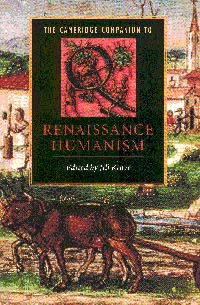Book contents
- Frontmatter
- 1 The origins of humanism
- 2 Classical scholarship
- 3 Humanism in script and print in the fifteenth century
- 4 The humanist reform of Latin and Latin teaching
- 5 Humanist rhetoric and dialectic
- 6 Humanists and the Bible
- 7 Humanism and the origins of modern political thought
- 8 Philologists and philosophers
- 9 Artists and humanists
- 10 Vernacular humanism in the sixteenth century
- 11 The new science and the traditions of humanism
- 12 Humanism and Italian literature
- 13 Humanism and English literature in the fifteenth and sixteenth centuries
- 14 Humanism and seventeenth-century English literature
- A guide to further reading in English
- Biographical index
6 - Humanists and the Bible
Published online by Cambridge University Press: 28 May 2006
- Frontmatter
- 1 The origins of humanism
- 2 Classical scholarship
- 3 Humanism in script and print in the fifteenth century
- 4 The humanist reform of Latin and Latin teaching
- 5 Humanist rhetoric and dialectic
- 6 Humanists and the Bible
- 7 Humanism and the origins of modern political thought
- 8 Philologists and philosophers
- 9 Artists and humanists
- 10 Vernacular humanism in the sixteenth century
- 11 The new science and the traditions of humanism
- 12 Humanism and Italian literature
- 13 Humanism and English literature in the fifteenth and sixteenth centuries
- 14 Humanism and seventeenth-century English literature
- A guide to further reading in English
- Biographical index
Summary
Humanists were brought up with the same Christian beliefs as scholastics. Many of them received a scholastic training and became members of the clergy, either regular or secular. True, humanists had a different attitude towards non-Christian sources. Yet for both humanists and scholastics the Bible remained a fundamental text. We may thus wonder why it took so long before the Scriptures were submitted to a scholarly and philological treatment and why the somewhat misleading term Christian humanism is applied only to the late fifteenth and early sixteenth century.
The problem was, in fact, formulated at an early stage by Petrarch. He himself seems to have realized the importance of the Scriptures only relatively late in life, when he was over forty. For what he described as this 'damnable lateness', he felt he should apologize. He had, he said, been led back to the Bible by reading the Church Fathers, particularly his own favourite, Augustine, who appears as a character in one of his dialogues, but also by Ambrose, Gregory, Lactantius and, of course, Jerome, the saint to whom the accepted Latin translation of the Bible, the Vulgate, was attributed. What made the Church Fathers so attractive to Petrarch and later humanists was that they reconciled classical and Christian views of human life and morals, and that they presented them in an elegant style. Rather than use a Father such as Augustine as the source of a theological system in the way that scholastics were accustomed to do, humanists saw him as a model of rhetorical skill, a Christian counterpart to Cicero. Petrarch regarded Augustine as a master of self-analysis and followed him in his itinerary from worldly concerns and classical texts to a state of spiritual enlightenment and repose in God.
- Type
- Chapter
- Information
- The Cambridge Companion to Renaissance Humanism , pp. 100 - 117Publisher: Cambridge University PressPrint publication year: 1996
- 7
- Cited by

